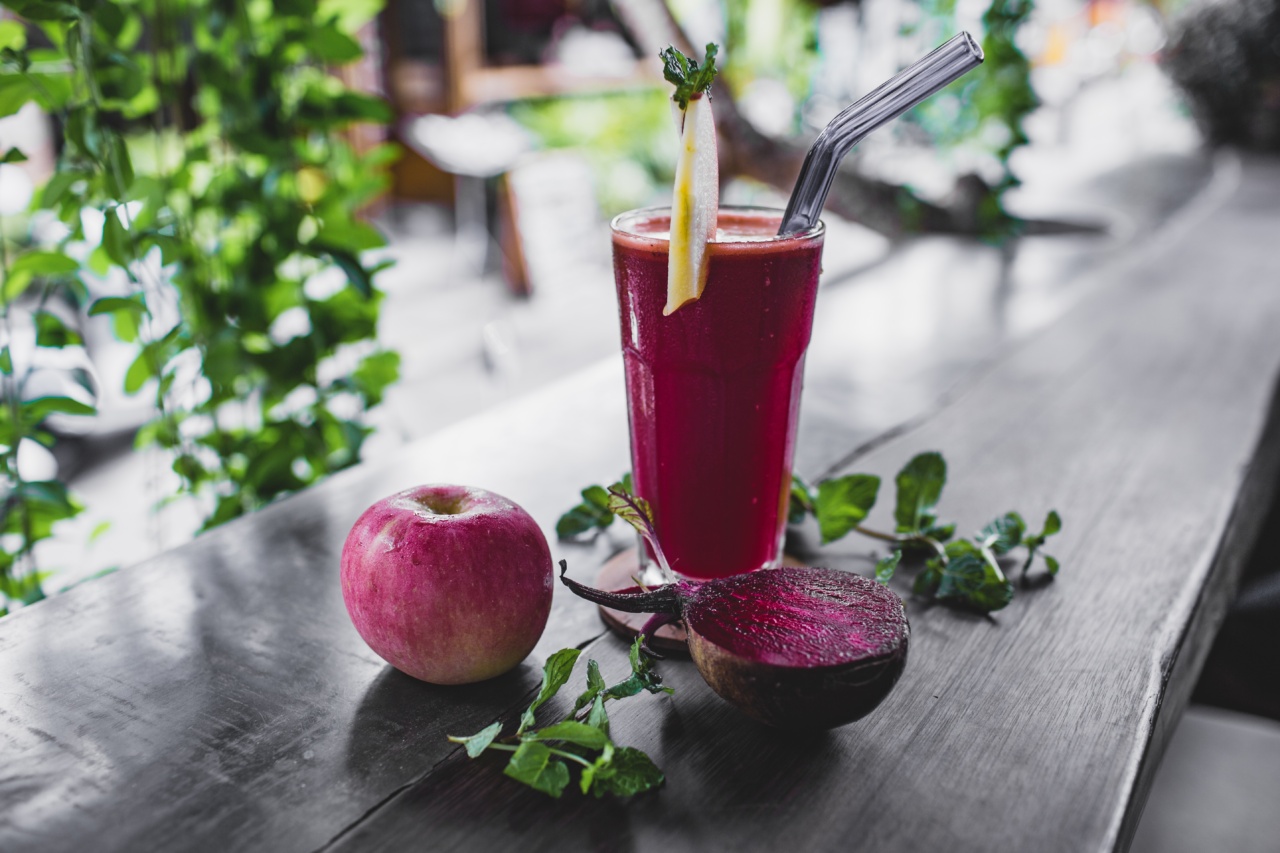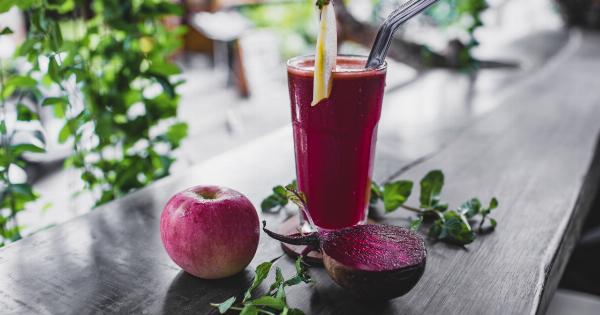High blood pressure, also known as hypertension, is a common health condition that affects millions of people worldwide. It is a chronic condition that can lead to serious health complications, including heart disease, stroke, and kidney problems.
While there are various treatment options available, many people are turning to natural remedies to manage their blood pressure. One such remedy that has gained attention in recent years is beetroot juice. This vibrant red drink has been hailed for its potential to lower blood pressure levels. Let’s explore the link between beetroot juice and lower blood pressure in detail.
Understanding Blood Pressure
Before delving into the benefits of beetroot juice, it’s important to understand what blood pressure is and how it is measured. Blood pressure refers to the force exerted by blood against the walls of your arteries as your heart pumps.
It is measured using two numbers: systolic pressure and diastolic pressure. The systolic pressure represents the force when your heart beats, while the diastolic pressure is the force when your heart is at rest between beats. The normal blood pressure range is typically around 120/80 mmHg.
Role of Nitric Oxide in Lowering Blood Pressure
Beetroot juice contains high levels of inorganic nitrates, which are converted into nitric oxide in the body. Nitric oxide plays a crucial role in regulating blood pressure.
It helps relax and dilate blood vessels, promoting better blood flow and reducing the strain on the cardiovascular system. By enhancing nitric oxide production, beetroot juice can potentially lower blood pressure levels.
Evidence from Scientific Studies
Several scientific studies have been conducted to investigate the effects of beetroot juice on blood pressure. These studies have provided promising results, indicating that beetroot juice can indeed help lower blood pressure.
A meta-analysis published in the journal Hypertension analyzed 22 clinical trials involving 1,451 participants. The analysis found that consuming beetroot juice significantly reduced both systolic and diastolic blood pressure levels.
Increase in Dietary Nitrate Intake
In addition to beetroot juice, other nitrate-rich foods such as leafy greens, celery, and radishes have also shown potential in reducing blood pressure.
These foods can be incorporated into a balanced diet to increase nitrate intake and support cardiovascular health. However, beetroot juice remains one of the most concentrated sources of dietary nitrates.
How Much Beetroot Juice to Consume
The ideal amount of beetroot juice consumption for blood pressure management varies from person to person. However, a common recommendation is to start with about 250 ml (8.5 ounces) of beetroot juice per day.
This can then be adjusted based on individual preferences and responses. It’s crucial to note that while beetroot juice can have significant benefits, it should not replace prescribed medication or other recommended treatments for hypertension without medical supervision.
Other Health Benefits of Beetroot Juice
Aside from its potential to lower blood pressure, beetroot juice offers numerous other health benefits. It is rich in essential nutrients such as vitamins A, C, and B6, as well as minerals like potassium and magnesium.
These nutrients provide antioxidant support, boost immune function, and promote overall well-being.
Possible Side Effects
While beetroot juice is generally safe for consumption, some individuals may experience side effects. The most common side effect is beeturia, a harmless condition in which urine and stools appear reddish after consuming beetroots or beetroot juice.
Additionally, beetroot juice may interact with certain medications, such as those used to manage blood pressure or erectile dysfunction. It’s important to consult with a healthcare professional before incorporating beetroot juice into your routine, especially if you have existing health conditions or are taking medications.
Conclusion
There is a growing body of evidence suggesting that beetroot juice can help lower blood pressure levels. Its high nitrate content assists in the production of nitric oxide, which promotes vasodilation and improves blood flow.
However, it is important to remember that while beetroot juice can be a valuable addition to a blood pressure management plan, it should not replace medical advice or prescribed treatments. Always consult with a healthcare professional before making any changes to your dietary or treatment regimen.































